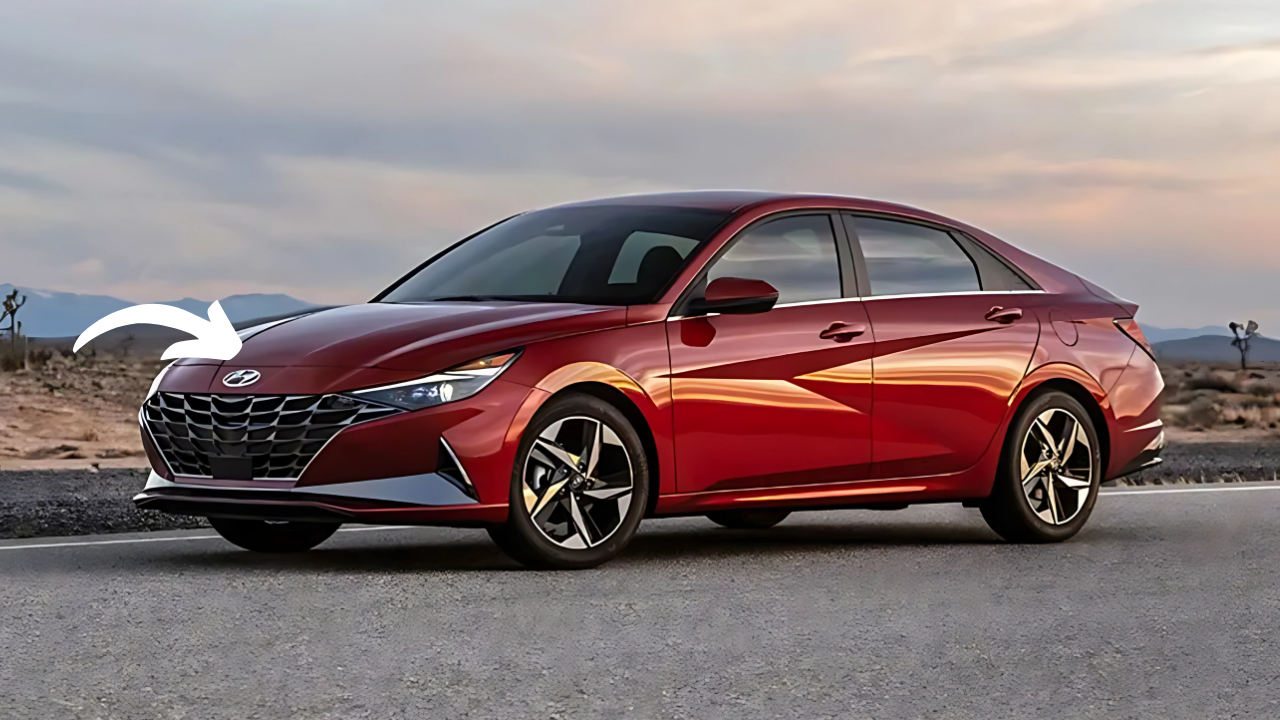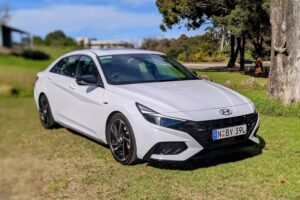In a rapidly evolving Australian automotive market, the title of the nation’s cheapest sedan has shifted hands. As of June 2025, the Hyundai i30 Sedan has claimed the crown, dethroning the MG 5, which held the position until a recent price hike and model range simplification. This change, reported by outlets like PerthNow and The Inverell Times, reflects broader trends in the sedan segment, where affordability, safety, and value are paramount. This article explores the Hyundai i30 Sedan’s rise to prominence, its specifications, pricing, features, and what this means for budget-conscious Australian buyers.
The Shift in the Market
The MG 5, a Chinese-manufactured small sedan, was Australia’s most affordable new sedan until mid-2025, with its entry-level Vibe variant priced at $24,888 drive-away. However, for the 2025 model year, MG Australia discontinued the Vibe trim and increased the price of the remaining Essence variant to $32,990 drive-away—a jump of over $8,000. This decision, driven by a safety update that removed the base model, opened the door for competitors. While some 2024 MG 5 stock remains at lower prices, the Hyundai i30 Sedan has seized the opportunity to become the cheapest sedan available in showrooms, at least until June 30, 2025, when its promotional pricing may expire.
The Hyundai i30 Sedan’s entry-level model is currently offered at a promotional drive-away price starting at approximately $29,000 (before on-road costs, which vary by state). This pricing undercuts the updated MG 5 and aligns closely with other small sedans from brands like Kia, Mazda, and Toyota. The i30 Sedan’s value proposition, combined with Hyundai’s reputation for reliability and a robust dealer network, makes it a compelling choice for first-time buyers, retirees, and those seeking an economical daily driver.
Hyundai i30 Sedan: Specifications and Features
The Hyundai i30 Sedan measures 4710mm in length with a 2720mm wheelbase, making it larger than the MG 5 and offering a spacious cabin for its class. It is powered by a naturally aspirated 2.0-litre four-cylinder engine producing 110kW of power and 180Nm of torque, paired with a continuously variable transmission (CVT). Hyundai claims a fuel economy of 6.1L/100km, which is competitive for a non-hybrid sedan in this segment. While not a performance car, the i30 Sedan delivers smooth and efficient driving suited for urban and highway commutes.
The entry-level i30 Sedan is well-equipped for its price point, featuring a suite of safety and convenience technologies. Standard features include:
-
Safety: Autonomous Emergency Braking (AEB), lane-keep assist, lane-centring assist, and a rear-view camera. These features ensure the i30 Sedan meets modern safety expectations, though advanced systems like blind-spot assist and rear cross-traffic alert are reserved for higher trims.
-
Infotainment: An 8.0-inch touchscreen with wireless Apple CarPlay and Android Auto, providing seamless smartphone integration.
-
Convenience: A wireless phone charger, air conditioning, and cruise control enhance daily usability.
-
Warranty: Hyundai’s five-year/unlimited-kilometre warranty, which, while shorter than MG’s 10-year/250,000km offering, is backed by a stronger service network in Australia.
Higher trims of the i30 Sedan add premium features like leather upholstery, a surround-view camera, and adaptive cruise control, but the base model strikes a balance between affordability and functionality. Compared to the MG 5 Essence, which now starts at $32,990 drive-away, the i30 Sedan offers similar equipment at a lower price, though the MG 5 includes additional safety features like adaptive cruise control as standard in its sole variant.
Pricing and Savings
The Hyundai i30 Sedan’s promotional pricing, valid until June 30, 2025, delivers significant savings depending on the buyer’s location. According to CarExpert, the deal translates to savings ranging from $1,426 in the Australian Capital Territory to $2,308 in Victoria. These discounts make the i30 Sedan an attractive option for buyers looking to secure a new car before the end of the financial year. However, if the offer is not extended, the title of Australia’s cheapest sedan could shift again, potentially back to MG or another competitor.
For context, other small sedans in the market include the Kia K4 ($30,590 plus on-roads), Mazda 3 sedan ($31,310 plus on-roads), and Toyota Corolla ($32,320 plus on-roads). The i30 Sedan’s drive-away pricing gives it an edge, especially for buyers who prefer to avoid additional on-road costs. Meanwhile, the MG 5’s price increase positions it closer to these established players, reducing its budget appeal.
The Broader Sedan Market in Australia
Sedans have lost ground to SUVs in Australia, with SUVs accounting for 60.4% of new vehicle sales in May 2025, up from 55.8% in 2024, according to the Federal Chamber of Automotive Industries (FCAI). Despite this trend, sedans remain a practical choice for buyers prioritizing fuel efficiency, lower purchase prices, and agile handling. The Hyundai i30 Sedan’s rise highlights the enduring demand for affordable sedans, particularly among urban drivers and small families.
The Australian market is also seeing increased competition from Chinese brands like MG, Chery, and BYD, which have disrupted pricing norms. For example, the MG 3 Vibe is one of Australia’s cheapest small cars at $22,888 drive-away, and Chery’s Tiggo 7 Pro is the most affordable family SUV. However, these brands face challenges in building trust and expanding dealer networks compared to established players like Hyundai. The i30 Sedan benefits from Hyundai’s long-standing presence in Australia, offering peace of mind for buyers wary of newer brands.
Electric and Hybrid Alternatives
While the Hyundai i30 Sedan is the cheapest internal combustion sedan, electric vehicles (EVs) and hybrids are gaining traction. The BYD Dolphin is Australia’s cheapest EV at under $37,990 drive-away, and the MG 4 Excite 51 is set to rise to $37,990 from July 1, 2025. Posts on X have speculated about the BYD Seagull entering Australia at around $25,000, which could challenge the i30 Sedan’s position if it includes a sedan variant. However, these claims remain unconfirmed, and EVs generally carry higher upfront costs than traditional sedans.
Hybrids, such as the Toyota Corolla and upcoming BYD Sealion 8 PHEV, offer a middle ground, but their prices typically exceed the i30 Sedan’s. For buyers prioritizing outright affordability over fuel savings, the i30 Sedan remains unmatched among new sedans.
What This Means for Buyers
The Hyundai i30 Sedan’s status as Australia’s cheapest sedan is a boon for budget-conscious consumers. Its combination of modern features, competitive pricing, and Hyundai’s reliability makes it a strong contender for those seeking value without sacrificing quality. First-time buyers, retirees, and small families will find the i30 Sedan particularly appealing due to its spaciousness, safety features, and low running costs.
However, buyers should act quickly, as the promotional pricing is set to expire on June 30, 2025. Visiting a Hyundai dealer or browsing platforms like CarExpert can help secure the best deal. Those considering the MG 5 should check for remaining 2024 stock, which may offer lower prices but lacks the i30 Sedan’s promotional savings and broader appeal.
Future Outlook
The sedan segment in Australia is likely to face further disruption as Chinese brands refine their offerings and EVs become more accessible. If Hyundai extends its i30 Sedan deal beyond June 2025, it could solidify its position. Alternatively, a new contender—perhaps from BYD or Chery—could emerge with an even lower price point. The FCAI’s data suggests a softening new-car market, with sales dipping in May 2025, which may pressure manufacturers to offer sharper deals.
For now, the Hyundai i30 Sedan stands as a testament to the enduring value of sedans in a market dominated by SUVs. Its blend of affordability, practicality, and modern features ensures it meets the needs of a diverse buyer base, from city commuters to regional drivers.
Looking Forward
The Hyundai i30 Sedan’s ascent to Australia’s cheapest sedan in June 2025 reflects the dynamic nature of the automotive market. By capitalizing on the MG 5’s price hike, Hyundai has positioned the i30 Sedan as a value-driven option with solid specifications and features. Whether this title holds beyond June 30 depends on market dynamics, but for now, the i30 Sedan is a standout choice for those seeking an affordable, reliable, and well-equipped new car. Buyers looking to take advantage of this deal should act swiftly, as the Australian car market remains as competitive as ever.


